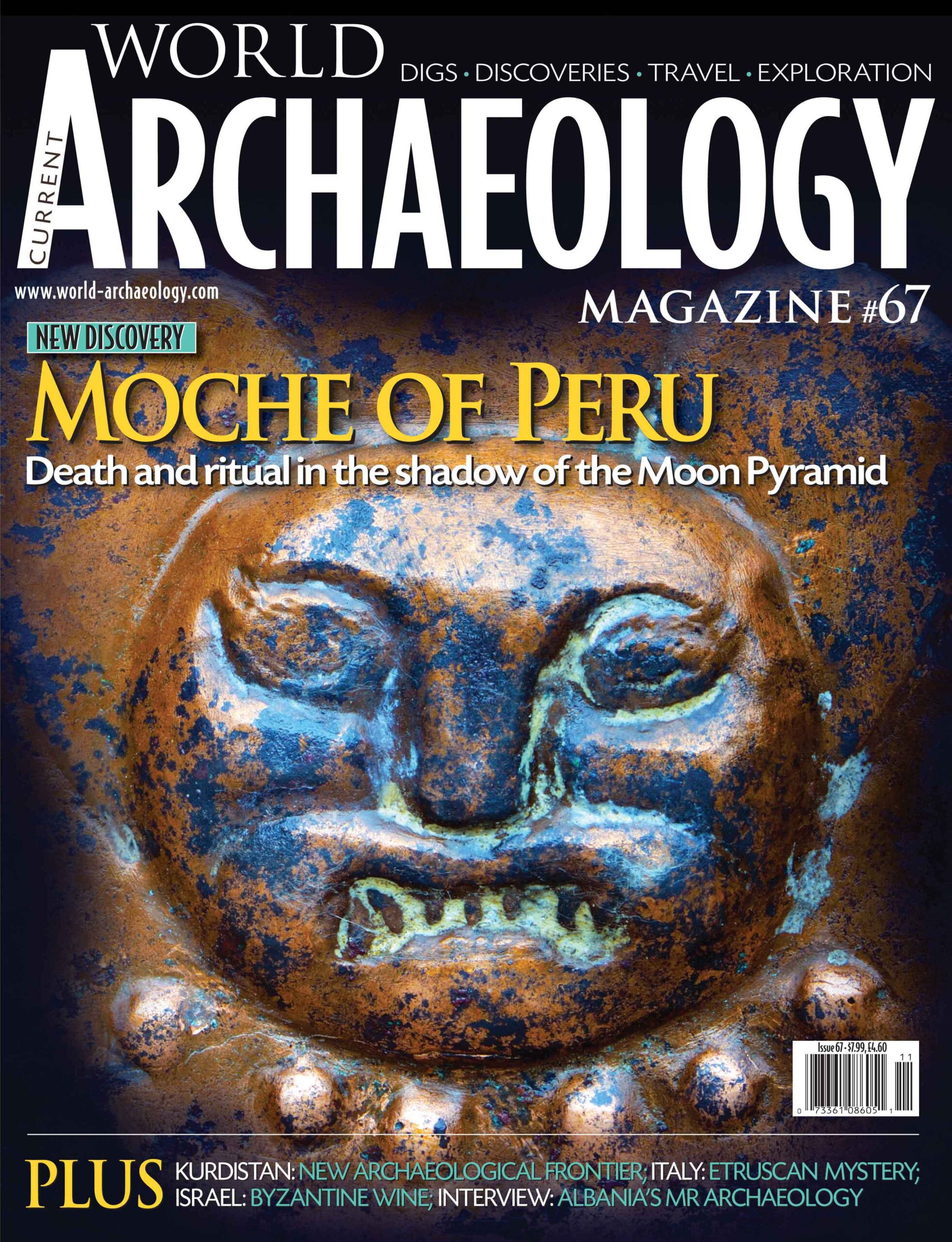The Moche were the first empire-builders of the American continent, more than eight centuries before the Incas, and just as deserving of fame as those Johnny-come-latelys. But they had no written language, and did not hang around long enough to be recorded in the histories written by European fortune-hunters who plundered their material legacy almost a millennium later. Now, after 20 years of excavation at the Moche capital, we are rediscovering this sophisticated – and terrifying – culture, with its dependence on human sacrifice to appease its pantheon of gods. The latest discoveries offer a fascinating insight into their world: a mysterious platform that, though represented in Moche art, has never before been found on the ground; and, buried next to it, three members of the Moche elite.
A different archaeological enigma is puzzling the team at the Etruscan site of Poggio Civitate, the largest complex of its time in the Mediterranean. Babies discarded with the rubbish, and evidence of a catastrophic fire are just some of the secrets that are beginning to emerge.
While strife elsewhere in the troubled Middle East prohibits much archaeological investigation, in Kurdistan a new age of exploration is just beginning. We take a peek at some of the exciting projects that are under way in this fascinating region.
In CWA 65 we looked at the popularity of the wine trade in the Holy Land. Now, a gigantic Byzantine-era winery discovered at Ganey Tal in Israel reveals how this industry was fuelled, and the community that grew up around it.
Albania’s Ambassador to Italy Neritan Ceka walked a political tightrope through some of his country’s most tumultuous times while producing highly acclaimed studies of its Illyrian past. Richard Hodges chats with him about his extraordinary life, influences, and passion for archaeology.
Finally, what does one of the greatest prehistorians of the 20th century have in common with a rock star? Paul Bahn found out when he visited Australia.

